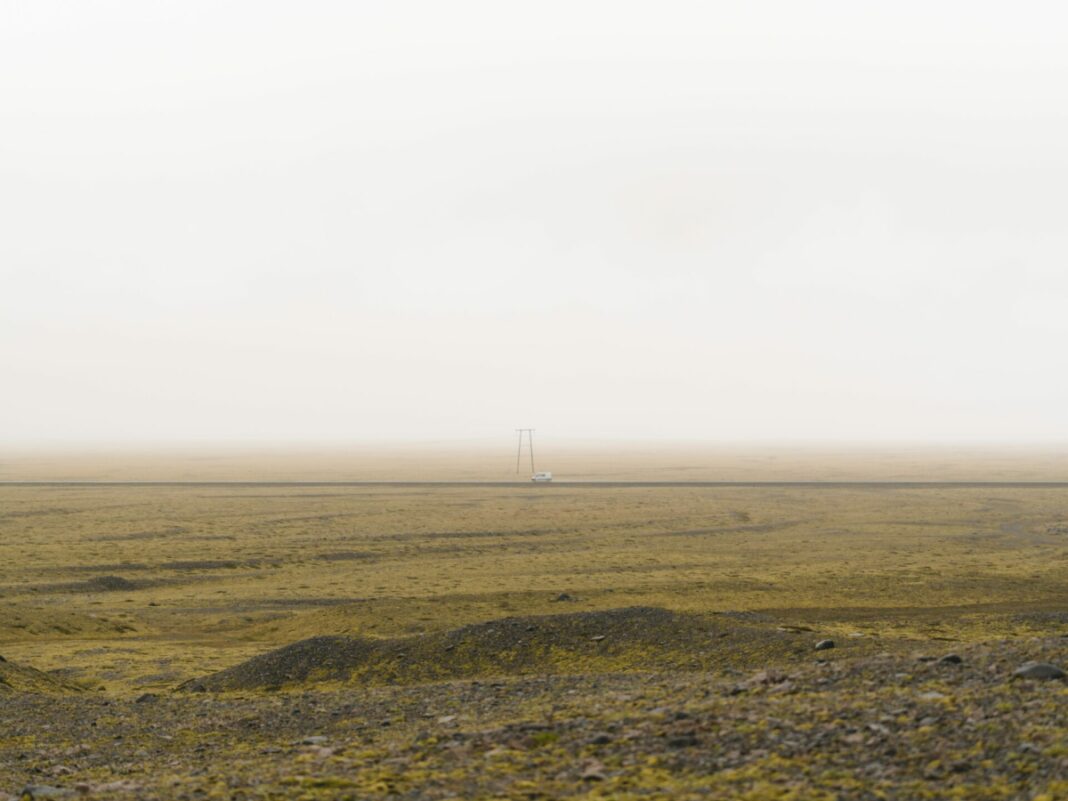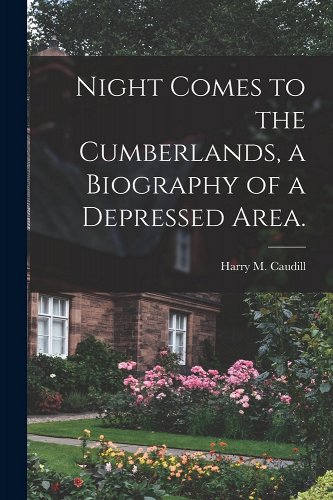Philadelphia, PA. I discovered both Harry Caudill and his book Night Comes to the Cumberlands by way of Wendell Berry, whose essay collection What Are People For? features a piece half reviewing a later book by Caudill and half reviewing the man himself. Berry held the man, a country lawyer whose entire existence was bound up in the Appalachians of southeastern Kentucky, in high esteem. Caudill lived in, practiced law in, wrote books about, and served as a political representative for southeastern Kentucky. A man of boundless energy, lofty intellect, and an undying civic spirit, Caudill was a rare exception to the region’s long-ruling dearth of gifted public leaders. His multifaceted career was a long, slow labor of love devoted to a desperate people living on decimated land—a people and a place quite difficult to love, and thus often unloved.
“Hundreds of spokesmen in the same cause have come and gone, hundreds of protests have flared out, hundreds of ‘concerned’ officials have made wages or made hay and gone on,” overwhelmed or demoralized by the inescapable “marks of ruin of both people and land,” Berry observed. “Harry Caudill is one of the few who have endured. What has kept him going?”
Sure enough, he has a strong sense of justice and a high capacity for moral outrage, but Berry finds these explanations insufficient. To them he adds that Caudill was born in Letcher County Kentucky in 1922, that he “did not come there to serve justice,” but “has been there because the land and the people for whom he has spoken are his own.” Berry might well have thrown in that they’ve been in his bloodline for generations, his ancestors having settled the region in 1792.
Caudill was a good leader, then, because his toil was borne not merely from outrage at the oppressive realities plaguing his people, but from a deeply rooted membership in the suffering community he sought to lead. He took joy in the same life his fellow man lived, and his power as a leader came from “long concentration on the same region and people” to which he belonged.
Reasserting in 1981 the central question of his life and work, Caudill asked: “Why should Kentucky be the nation’s leading coal-producing state if all we get out of it is crippled and dead miners, silted streams and lakes, torn up roads, uprooted forests and holes in the ground?” He spent his career rallying against the powerful forces of national and global industrialization that he saw hollowing out his community and countless others like it.
This hollowing has continued largely unhindered to the present day and is largely the fault of those Mike Solana has described as America’s “transient, rootless elite with a lack of loyalty to place.” As physical relocation has grown ever easier, and our culture ever more numb to its evils, lagging communities have suffered not only from exploitation by distant elites, but also from abandonment by anyone talented or fortunate enough to escape the plunder. Had Caudill been born, instead of dying, in 1990, one wonders whether he would have “got his law degree and went home with it,” as he did to Berry’s delight in the mid-twentieth century.
Infinite mesmerizing temptations from every corner of the Earth are now available to us, in vivid depiction, every second, right in the palms of our hands. Communities like Caudill’s are now economically and environmentally desolate, as they were in his time, and being sucked into the void by synthetic opioids flooding across our borders from Chinese manufacturers and Mexican cartels. In other words, the allure of far away places could not possibly be stronger, nor escape to them simpler, for the able youth of Appalachia, flyover country, the Rust Belt, urban ghettos.
But we’re merely farther down a path we started on decades ago. I should know; I’m a man from nowhere.
My father was born in Virginia to an air traffic controller of Italian stock and his Polish wife. His family moved to New Jersey, then he went to college in Pennsylvania where he met my mother, who’d come from New York but was born in Maryland to a university professor of English and German stock and his wife, who was adopted and of unknown heritage. My dad, an army man, was stationed at Fort Hood in Texas when my brother was born, and spent some time in Kuwait before leaving the service for an engineering job in my birthplace, Angola, Indiana. By then, his parents lived in the swamps of Louisiana and my mom’s in the Shenandoah Valley. I had cousins in a Philadelphia suburb and in the Rocky Mountains, an aunt in Manhattan, and an uncle in Florida. We left our lake-strewn Indiana county for the Appalachian streams of northern Pennsylvania when I was eight, and my cousins left the suburbs of Philly for those of Boston. My paternal grandpa died and his wife moved to Wilmington, Delaware. I left Appalachia for Pittsburgh and then Pittsburgh for Philadelphia, which I now call home. My parents still live in northern Pennsylvania, my brother in Maryland. My cousins have scattered to Los Angeles, Connecticut, and Colorado. Of my five closest friends, two live in Philadelphia, one in northern Pennsylvania, one in Pittsburgh, one in Maryland – only one in the same zip code as his parents. My girlfriend lives on the Main Line but her family lives in northern Massachusetts.
All of which is a long-winded way of saying my existence is sparse, I’m from all over the place, and so from no place in particular. Were I to pursue public leadership, like Harry Caudill, I would have no choice but to show up somewhere “to serve justice,” as I have no land or people to call my own. I have no deeply rooted membership in any delineable community.
I am not now lamenting my station, which is a kind of existential loneliness, though at times I do. I’m putting it down in writing because I know for certain that in this loneliness I’m far from alone. My generation is on the receiving end of many decades of social fragmentation, of customs cast aside, traditions upended, beliefs abandoned, institutions and authorities delegitimized—in short, of the gyre widening. If Berry is right that authentic leadership has much to do with deep ties to land and people, it’s no wonder it’s nowhere to be found; we’re a scattered people.
If our culture is fragmented and our politics decrepit, it hardly matters which is downstream from which. Poor leaders can’t restore culture; weak culture can’t nurture good leaders. Before we can even think about progress, we must halt the widening of the gyre. With all the fortitude and goodwill we can muster, we must commit an act simultaneously cultural and political, the act that matters most in modern America: planting roots, or preserving those you inherited.













Thank you for this – a fine essay that resonates with me even though my wife and I left our home in Kentucky 41 years ago for employment in Texas. We have built a good life here, but have never really felt that we’re among our people. The correct answer, of course, is to “cast down your bucket where you stand,” and get to work, but that sound advice is much easier given than followed. Nevertheless …
This is why most of us go to the local pub,
for the sake of
Sharing a drink we call loneliness
But it’s better than being alone.
Hey Nick– Grateful for Jeff’s “News from the Front Porch” as I fear that, without it, I might have missed this gem of a piece. In reading your haunting and haunted essay, I couldn’t help but think of our conversation, at this site, regarding your resonance with, and my, somewhat Blakean, disdain of, what Oswald Splenger called “infinity dynamics”: an obsession with being a tiny something in an infinite space, dynamics that he suggested are culture-relative (and dying in our time, with the death of the West), and I insist are also at war with the the Divine Imagination. I think that if you placed Yeats’ “widening gyre” within Spengler’s gyre/cycle (here echoing the “wheels within wheels” of all great seers from Empedocles to Ezekiel to Blake and beyond), you’d see that the historical dynamic of this period of “Decline of the West” (what Spengler calls the “Faustian Age”), casts your story, and that of your girlfriend, not within a theme of resignation and homelessness but, instead of an understanding of the period of “world-cities” that are predatory on the surrounding countryside and are filled with a “new sort of nomad, cohering unstably and fluid masses, the parasitical City dweller, traditionless, utterly matter-of-fact, religionless, clever, unfruitful, deeply contentious of the countrymen and especially that highest form of countryman, the country gentleman.” The “country gentleman”. Perhaps like Henry Caudill? Your story, too, can be seen in the gyre/wheel of Christopher Lasch and others who penetratingly saw the paralysis of modern “choice” and, therefore, no actual sense of “moving on” though life in our cultural landscape of narcissism: When choice gets reduced to the choice between Coke and Pepsi, or “lifestyles”, choice is robbed of its meaning, as there is no “road (actually) not taken,” and, consequently, no maturation, as you can have the ‘other’ consumer choice tomorrow. Nothing, then, seems real, as it’s all in our head as there are no consequences. It’s what my friend, Stephen Vizinczey, calls “the solitude of speed”.
I’ll take you at your word that you are not lamenting your station but putting it down in writing. You’re doing an important thing. You’re in the first chapter of Genesis when God asks Adam: “Where are you?” Nonetheless, it also seems that you’ve made a pretty good case, almost despite yourself, that, in fact, you do have a “delinable” community, (“where two or three are gathered”), even if not “deep”, in northern Pennsylvania. Cast a ring and cast down your bucket. Name your girlfriend and name a town. As Stephen Sondheim wrote, “I chose and my world was shaken. So what? The choice may have been mistaken; The choosing was not. You have to move on.” In other words, stop being what, in my first essay that you reviewed and critiqued, “a vulgar, adolescent, bigness fetishizer.” Depending on where in “northern Pennsylvania,” we’d be virtual neighbors.
Comments are closed.